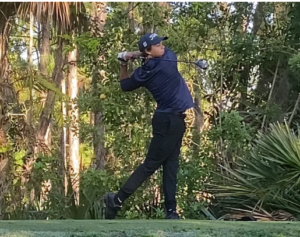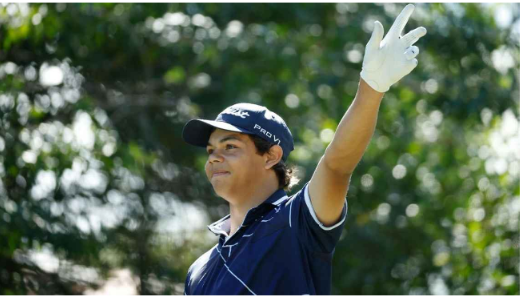The adage “the apple doesn’t fall far from the tree” is often challenged, and Charlie Woods, son of golf legend Tiger Woods, is a prime example. At just 15 years old, Charlie made headlines by competing in his first PGA Tour pre-qualifier. However, his performance, shooting a 16-over 86, raised questions about expectations and whether they were fair given his age and limited competitive experience.

Charlie’s lack of participation in American Junior Golf Association (AJGA) events and the realization that greatness doesn’t always transfer genetically underscored the challenges he faces. Yet, amidst his struggles, a debate emerged about whether Cognizant, as the sponsor of a PGA Tour event, should have extended a sponsor exemption to Charlie.
Looking back at history, instances like Mark Rypien’s participation in the PGA Tour event following his Super Bowl MVP win demonstrate the evolving nature of sponsor exemptions. These exemptions, once reserved for unknown professionals, expanded to include athletes from other sports, like Michelle Wie, who brought excitement and viewership to tournaments despite not always performing at her best.
Sponsor exemptions serve a dual purpose: generating buzz for tournaments and attracting audiences. While Charlie may not have performed well in the pre-qualifier, his mere presence garnered significant attention, with spectators and media closely monitoring his progress. This attention translates to increased viewership and engagement, which benefits tournaments seeking to stand out in a crowded sports landscape.
Critics may argue against extending exemptions to Charlie based on his performance, but the reality is that names sell in professional golf. Charlie’s association with his father, one of the most iconic figures in the sport, ensures that his participation would draw interest and potentially elevate the tournament’s profile.
In a sport where signature events draw top players, tournaments like Cognizant Classic can benefit from the added allure of a rising star like Charlie Woods. When comparing Charlie to alternate list players like Mac Meissner or Tom Whitney, the potential upside he brings to the event becomes clear.
In conclusion, sponsor exemptions play a vital role in professional golf, allowing tournaments to create excitement and attract audiences. Charlie Woods, despite his initial setback, embodies the potential to captivate fans and enhance the tournament experience. It’s time to reconsider the criteria for sponsor exemptions and embrace the value of names like Woods in elevating the sport.
